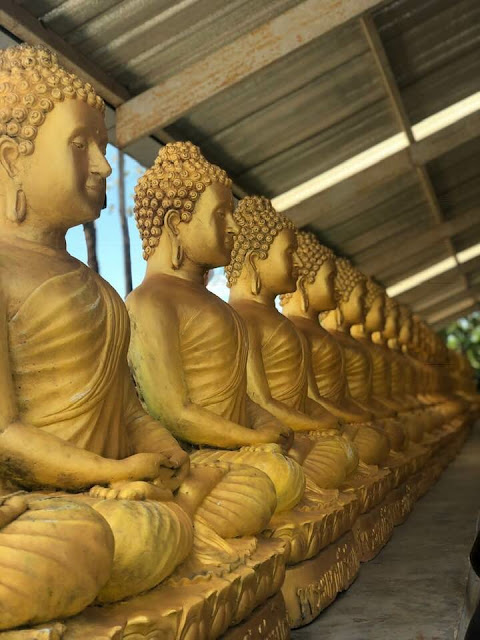When you meditate, you see things that are hidden in plain sight that distraction blinds us to. Righteous anger can be a hindrance. I need to vent spleen to get it out and move on.
The current president is a huckster, the kind of salesman that will say anything to sell something, so slick and oily. While he's visiting the troops in Iraq, he disclosed military secrets, like the bumbler he is, and took credit for an imaginary pay raise that does not exist.
He tweeted that he'd signed a contract to build a wall, when that's not how the government works, and thus lied or broke the law. As an ubermensch, he isn't really fettered by the rule of law, even though as president one of his jobs is to maintain the order of law, and if it ever breaks down, he's the first to whine about it.
He doesn't take responsibility for the lack of respect he experiences, and then rails about others not taking responsibility.
We are too reality oriented to not notice. The grounds for his impeachment come from multiple fronts, but the political reality is that he has to offend the Republicans that hold their nose and tolerate him, not out of principles, but out of the hatred of the political other. He is the ultimate us/them president.
He's the ultimate script flipper and bottomless pinocchio. That is his plan, just hear what other say and then flip the script.
He didn't even read the resignation letter of Mattis, and only by watching TV found out that it was basically saying, "here's what I believe and that's why I have to resign," which is a way of saying you ain't got any of this stuff and it's disgusting to work here. He believes in nothing, except his self interest, and that is becoming more and more evident. Not sure how it wasn't before. He's willing to make fun of people with disabilities to please a crowd, which is deplorable. That is our leader.
Jon Voight goes on Twitter to say Trump has done great things, but can't both to list any of them.
As a liberal patriot, the fact that conservatives are getting off on the liberal ire, that the conservatives have already built up a campaign of calling Ocasio-Cortez stupid, trying to demonize her the way they demonized HRC, spinning with their Russian bots and trolls a raft of misogyny that carries America past true opportunity for growth. Trump shuts down the government and then imagines it's full of
Ron Swansons.
The reason Trump doesn't pay attention to the environment is that conservatives are all about winners, and the earth is dying, it's a losing game. It doesn't have to be. Nevermind. Conservatives are about winners, not those losers who need welfare. They can't imagine themselves losing, so there is no need for compassion. It's only a lack of discipline that gets people on welfare. Never mind that this is the most undisciplined president in the modern era.
Now it is a valid theory to want a smaller government, or a least to check the growth of government. There are many Buddhist heroes who voted conservative.
It is a valid theory to want government only for defense, and thus the government has create the greatest welfare queen in the military. The billions that could be squandered on education, health care, infrastructure are better spent on
1.5 trillion dollar airplanes. The loser whiner liberals just imagine investing in the losers who aren't winning.
The reality is: America is superficial, anti-intellectual, confused, immature, befuddled, self confounding. It is short sighted, seeing economic growth only, not imagining grandchildren's future. The unprecedented deregulation by the Trump "administration" is already paying karmic fruit. It is cruel beyond belief, allowing children seeking refuge to die in their bungled care. We will change the laws around guns when we love children more than we love the idea of guns that wasn't even in the constitution.
Forget the history of ending slavery, the civil rights movement, moving towards more gender equality with women voting, or the Marshall plan that helped Europe recover from a second world war, that was perhaps created by the failures of not rebuilding after the first world war. America joined the World War to work against the persecution of Jews. We are beginning to own up to our history of
massacre where the true "Indian givers" was the USA. This is the America that makes me proud, and it includes conservative heroes as well because of inclusivity, but not those who are against inclusion, they are out. I'll reserve my hate for the hate-mongers. Feel the feelings, but act in your own best interest.
What if these evil Megaminds resigned, and there were no need for these heroes? Do we need the Sith to create the Jedi? Or could we just tap into the force without opposition?




